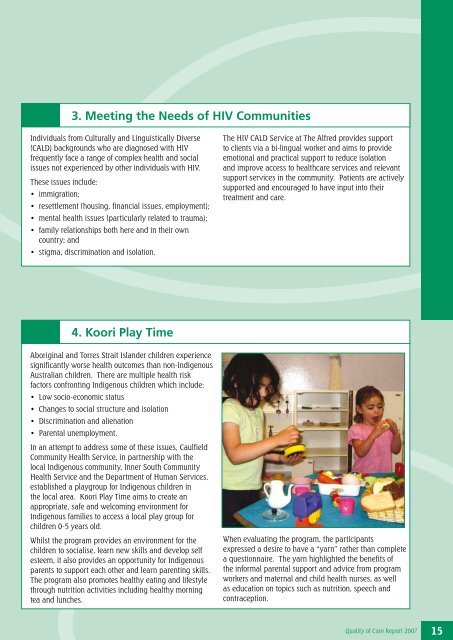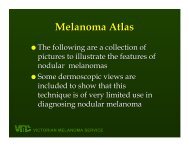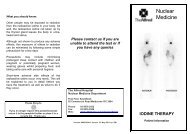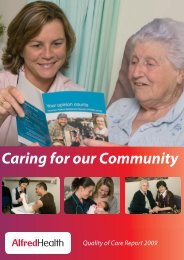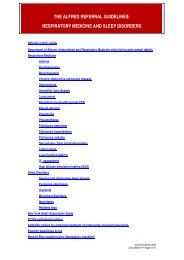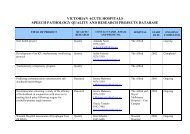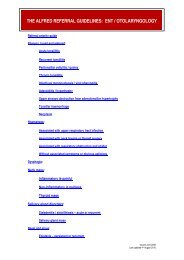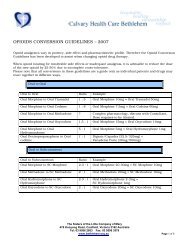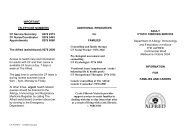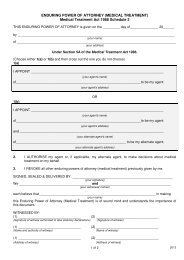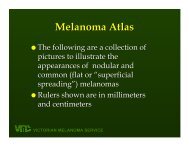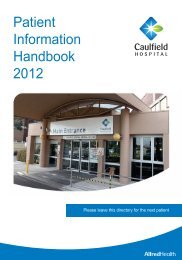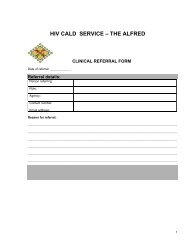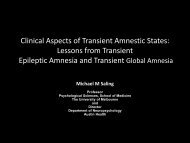Bayside Health - Alfred Hospital
Bayside Health - Alfred Hospital
Bayside Health - Alfred Hospital
- No tags were found...
Create successful ePaper yourself
Turn your PDF publications into a flip-book with our unique Google optimized e-Paper software.
3. Meeting the Needs of HIV CommunitiesIndividuals from Culturally and Linguistically Diverse(CALD) backgrounds who are diagnosed with HIVfrequently face a range of complex health and socialissues not experienced by other individuals with HIV.These issues include:• immigration;• resettlement (housing, financial issues, employment);• mental health issues (particularly related to trauma);• family relationships both here and in their owncountry; and• stigma, discrimination and isolation.The HIV CALD Service at The <strong>Alfred</strong> provides supportto clients via a bi-lingual worker and aims to provideemotional and practical support to reduce isolationand improve access to healthcare services and relevantsupport services in the community. Patients are activelysupported and encouraged to have input into theirtreatment and care.4. Koori Play TimeAboriginal and Torres Strait Islander children experiencesignificantly worse health outcomes than non-IndigenousAustralian children. There are multiple health riskfactors confronting Indigenous children which include:• Low socio-economic status• Changes to social structure and isolation• Discrimination and alienation• Parental unemployment.In an attempt to address some of these issues, CaulfieldCommunity <strong>Health</strong> Service, in partnership with thelocal Indigenous community, Inner South Community<strong>Health</strong> Service and the Department of Human Services,established a playgroup for Indigenous children inthe local area. Koori Play Time aims to create anappropriate, safe and welcoming environment forIndigenous families to access a local play group forchildren 0-5 years old.Whilst the program provides an environment for thechildren to socialise, learn new skills and develop selfesteem, it also provides an opportunity for Indigenousparents to support each other and learn parenting skills.The program also promotes healthy eating and lifestylethrough nutrition activities including healthy morningtea and lunches.When evaluating the program, the participantsexpressed a desire to have a “yarn” rather than completea questionnaire. The yarn highlighted the benefits ofthe informal parental support and advice from programworkers and maternal and child health nurses, as wellas education on topics such as nutrition, speech andcontraception.Quality of Care Report 2007 15


